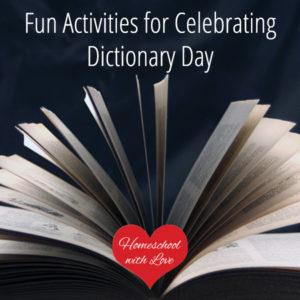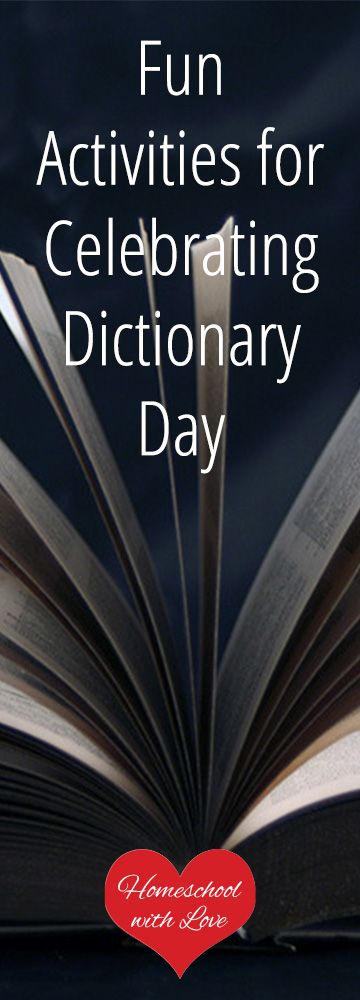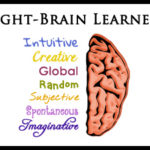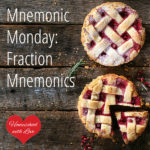
Today is October 16th. You know what that means, don’t you? It means that you can celebrate Dictionary Day in your homeschool. Yay!
Dictionaries are such useful tools. And some of the words in our English language are fascinating. That’s why I thought I’d pull together some activities for you to do in your homeschool today.
But let’s start with some background information about Dictionary Day and the man it commemorates.
- Dictionary Day is celebrated on Noah Webster’s birthday. (You might want to bake a cake for the occasion.)
- Noah Webster lived at the time of the American Revolution. He was a schoolteacher during the war.
- Noah knew Benjamin Franklin.
- He is known as the Father of the American Dictionary.
- He spent 27 years writing An American Dictionary of the English Language. (Remind your kids of that the next time they complain about writing a report.)
- He changed the spelling of some English words to simplify them and make them more phonetic. Some of those words include: humour – humour, colour – color, women – wimmen. The last one obviously didn’t stick.
- He included some uniquely American words like skunk, squash and chowder in his dictionary.
That’s it for the background trivia. Let’s move onto some activities.
Celebrate Dictionary Day
Illustrate a Word
Your kids can choose a word from the dictionary to illustrate. Here’s how.
First, let them choose a word that can be illustrated in some way. Words like leaves, beautiful, and praying would work. Words like conundrum, invisible, and blank might be a bit difficult.
Then, on a piece of white paper, have your children write their word in big letters in an interesting way. It can be anywhere on the paper.
Finally, tell your budding artists to draw and color a picture around the word that illustrates it. “Beautiful” could have beautiful things like roses and rainbows around it. “Praying” could have prayer hands or people praying. Done!
Explore Interesting Words
As I said before, English is a fascinating language. It has very interesting words that are little-used. I have some listed below. Maybe if you and your kids look them up in a dictionary or on dictionary.com and learn about them, you can start throwing some into your daily conversations.
lexicographer
penumbra
chatoyant
plethora
inglenook
mellifluous
riparian
palimpsest
adumbrate
hootenanny
brouhaha
codswallop
Do a Little Etymology
Etymology is the study of the origin of words. As you probably already know, the English language is made up of words from many different countries. Here’s a list of some words your family can investigate to discover their country of origin.
potato
prattle
okra
critique
knapsack
cameo
key
tundra
caboose
tsunami
What did you do today in YOUR homeschool to celebrate Dictionary Day? I would love to hear about it below.







